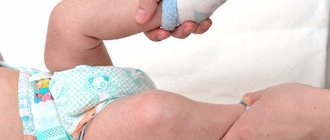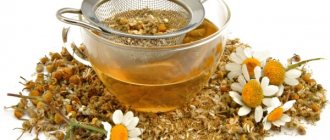Causes
To understand why a child spits up often and a lot, you should delve into all the details of the process, this will help to distinguish a physiological norm from a dangerous situation. This happens involuntarily. The contents of the stomach are released into the esophagus and then into the mouth. You won't be able to completely get rid of this natural process, but you can reduce the frequency and quantity.
Usually a child spits up after eating. This is explained by the fact that during feeding, air gets in with the milk, which, in turn, provokes abdominal pain - colic.
Causes of the phenomenon
- Binge eating. If there is a lot of food, the body returns it back. This is especially true for infants - bottle-fed children usually have a strict regimen and always the exact amount of formula. It happens that the nutritional value of mother’s milk is not enough, the child tries to eat more, but the stomach cannot cope with such volumes.
- Trapping of excess air as a result of improper attachment to the breast or due to a hole in the bottle nipple that is too large (or too small). Air is also swallowed when the baby fidgets or cries.
- Immaturity of the sphincter - a muscle located between the esophagus and the stomach and prevents food from entering back into the esophagus. Risk group: babies born prematurely or with low birth weight.
- Dysbacteriosis due to non-compliance with the diet by the mother.
- Poor mixture composition. A baby can react this way to certain allergen components.
What to do?
In order for the air to escape, you need to press the baby's stomach against your own body in an upright position. In other words, in a column. The head should rest on the adult’s shoulder, since he still does not know how to hold it straight. If the air does not come out, you can try lightly patting the back. This usually helps. Don't be alarmed if milk comes out along with the air. The question often arises: “A month-old baby spits up - why does this happen?” Yes, because he likes to suck milk, and he does this not only to satisfy his hunger. This brings him pleasure and brings him closer to his mother. If you pay attention, you can see that even in his sleep he makes sucking movements. At the same time he even smiles. The child burps more after eating because he overeats. Carried away by the process, he sucks out more milk than required. This is not a reason to worry - he has not yet learned to control the process of satiation. He will grow a little more and will eat exactly as much as he is supposed to.
More than 80 percent of babies under 7 months burp every day. The number of regurgitations and their frequency depend on several factors, for example:
- whether the baby is full-term or not;
- dynamics of weight gain;
- birth weight;
- the mother's desire to feed on demand.
Remember: overeating will never be healthy!
What to do when spitting up
If the baby is constantly spitting up, parents should know what to do in such a situation and how to eliminate the negative consequences. It is recommended to follow the following recommendations:
- giving the baby an upright position immediately after feeding to burp excess air;
- The baby should be in a horizontal position on its side for a short time to eliminate excess breast milk. At the same time, you need to carefully monitor him to avoid turning over on his stomach, since such a position can lead to suffocation;
- To eliminate the unpleasant sour smell in the mouth after burping, you can give the child a small amount of boiled water.
These actions will help eliminate the unpleasant symptom and prevent consequences. In most cases, the baby spits up a little immediately after feeding and this factor does not in any way affect his general condition.
For many young mothers, the presence of blood in regurgitated milk is a serious concern. Such symptoms are not always the cause of severe pathology. When breastfeeding, the baby actively sucks at the breast and may bite the skin, which will lead to the release of a small amount of blood, which enters the newborn's stomach.
Dissonance between the pharynx and intestinal motility is another reason
When a baby sucks milk, he does it in series, 3-5 times. Between them, making small pauses, he swallows what he managed to pump earlier. Breast milk reaches the intestines quickly, as it is a liquid food. When food enters the intestines, peristaltic waves appear. At this time, the pressure in the stomach increases. This encourages food to return to the esophagus.
The next reason that a child spits up curdled milk is that the cardiac part of the stomach is imperfect. As he gets older, a cardiac sphincter will appear between the esophagus and the cardiac part of the stomach, which will prevent food from being thrown into the esophagus due to contracting movements.
What are the causes of regurgitation in babies?
Why does a baby spit up after breastfeeding? The process is explained by the peculiarities of the physiological structure of organs.
Part of the food that has entered the stomach is involuntarily thrown into the esophagus, then into the pharynx and mouth.
As a result, the already curdled milk ends up outside.
The main reason for this phenomenon is the poor development of the stomach area behind the esophagus and the absence of the cardiac sphincter (this is the part of the gastrointestinal tract that retains food).
The intensity of the process depends on the elasticity of the walls. Regurgitation is usually accompanied by hiccups.
Abundance is affected by the baby's full term, its development (graph of weight gain), and the amount of food. According to pediatricians, if the amount of escaping masses does not exceed 3 ml, the phenomenon should not cause alarm. Also, do not worry if the child is actively gaining weight, and regurgitation does not cause him discomfort.
There may be several reasons why a baby spits up curdled milk. Experts combine these factors into large groups.
Does your baby have difficulty falling asleep? Then tips on how to put your baby to sleep in five minutes will come in handy.
What to do if a child has a lump after DPT? You will find the answer at the link.
You will find cottage cheese cookie recipes for children in this publication.
The baby spits up and at the same time loses kilograms
If a child begins to spit up and does not gain weight, then you should sound the alarm and not hope that this is a physiological norm. The doctor will just examine him, ask his parents about the details and, possibly, prescribe tests. Here are the most common causes of weight loss due to regurgitation:
- Infection. The gastrointestinal tract system immediately responds to infections in the body. Usually the color of the regurgitated mass is yellow or greenish. This is because food mixes with bile. If you notice that your baby is spitting up greenish milk, seek medical help immediately! If any other threatening symptoms appear, call an ambulance.
- Lactose intolerance. A woman's breast milk contains a protein called lactose. In the stomach it is broken down by the enzyme lactase. When this enzyme is missing or produced in small quantities, milk intolerance occurs. Naturally, if the body cannot digest it, the child will spit up often and a lot.
- Improper development of the gastrointestinal tract. The digestive system is very complex. And not everyone has organs that are the right size, shape, or in the right order right after birth. Quite often something is small and something is jammed or twisted. Only a doctor will be able to correctly identify the “wrong” organ that is causing the child to vomit curdled milk.
How to distinguish regurgitation from vomiting
An important aspect when regurgitating in babies is to correctly distinguish the phenomenon from vomiting. An unpleasant symptom indicates a disruption of the digestive system and occurs regardless of feeding. As the pathology progresses, additional signs may be observed in the form of a sharp increase in temperature, poor appetite and sleep disturbances.
With constant vomiting, the regurgitated mass has a yellowish tint with a distinct unpleasant odor. The urge is often repeated. During this period, the child must be given clean boiled water to drink to prevent dehydration and, if possible, immediately consult a doctor.
If a child spits up curdled milk immediately after feeding in a small amount, and the general condition of the baby does not change, then there is no reason to worry. To eliminate excess air, it is necessary to hold the baby in an upright position for some time.
Many parents also get scared if their baby regurgitates curdled milk. This phenomenon is considered the limit of the norm and to some extent indicates the natural functioning of the stomach, which digests incoming food well.
Is it possible to reduce the amount of regurgitation?
Everyone is convinced that regurgitation in babies who are gaining weight well is a physiological norm (that is, it will not cause danger). True, not everyone will like the fact that everything starts to smell like burp.
A frequently asked question in pediatricians' offices is: “Is there a solution to the problem of spitting up?” Doctors respond to this that everything will pass over time, you just have to wait. Babies stop unintentionally regurgitating stomach contents when they begin to sit up on their own, which is around 6-7 months. But what should moms and dads who can’t wait do? Pharmacies do not sell medications or special devices that will help solve the problem. The only thing you can use are remedies for excess gas formation. Some are made on the basis of simethicone (Sab Simplex, Espumisan, etc.), while others are made from fennel fruit (Plantex). You can also use dill water, known in Soviet times, or brew dill mixture at home. You just need to know the recipe. Regardless of what you choose, the medicine will remove gases from the tummy, which means that the pressure on the walls of the stomach will decrease, and the volume of regurgitation should become less.
How to help your baby?
All babies burp; it is impossible to completely get rid of this unpleasant phenomenon. Don’t worry, every day the baby becomes stronger and stronger, his body is developing, and in a few months the digestive system will begin to function normally. This does not mean that the mother should just wait it out; do everything in your power to make the regurgitation less frequent and less frequent.
First of all, help your child get rid of the air in the stomach.
- Feed your baby more often and make smaller portions so as not to overload the stomach.
- The baby's clothes should be loose, and diapers should not be wrapped tightly.
- After each feeding, hold the baby upright for about a quarter of an hour. Hold his tummy close to you and place his head on your shoulder. To make the air come out faster, gently pat the back.
- Before feeding, let your baby lie on his tummy for a while.
- Massage around the navel in a clockwise direction.
It is believed that diapers are a relic of the past, but after feeding it is advisable to wrap the baby. Just don't pull it too tight. A swaddled baby is not able to move too actively, and the stomach will be able to calmly digest food.
Don't forget that muscles also participate in the functioning of the digestive organs. Do physical exercises with your child, give him a massage. Exercises in water are very useful for physical development. When bathing, take your time, let your baby play in the bath, move his arms and legs, and splash around. It’s great if you have the opportunity to visit the children’s pool.
Pay attention to your menu. Although some scientists believe that a mother's diet does not affect the quality of breast milk, it is better not to test this on your baby. All foods for a nursing mother should be fresh and of high quality. At the slightest suspicion that food has begun to spoil, mercilessly throw it into the garbage chute. Avoid foods that can cause fermentation and severe gas formation in the stomach.
Fighting regurgitation
After finishing feeding, carry the baby in an upright position (as described just above) for about 20-30 minutes. If you don't have this time, use a sling. The more air your baby lets out, the less he will burp. Take your time during feeding (both breastfeeding and bottle feeding). It is better to feed more often, but in smaller portions. Pediatricians advise helping formula-fed infants to release air after every 90 grams of formula, and for breastfed children when changing breasts or during a sucking pause. Give both of them a rest for another half hour; no need to play with them or toss them around. Believe me, you will still have time to do this.
Is your child an artificial person? Then check that the hole in the nipple is the correct size. It shouldn't be too big. Why does my baby spit up a lot? Yes, because in our time it is not customary to swaddle. But in vain. Doctors advise doing this (just do not tighten the legs). When the baby is wrapped in a diaper, his activity decreases, and with it the pressure on the walls of the ventricle.
Don't forget to lead an active lifestyle, it will benefit you too. Take your baby out into the fresh air every day and bathe him before bed. If you have the opportunity to go to the pool with him, great, don’t miss it. Every time before going to bed, do a tummy massage and gymnastics. This all strengthens the muscles. When putting your baby to bed, give him a pacifier. This is quite useful. Sucking movements stimulate intestinal activity, and food no longer arrives. This means that it will be digested faster.
Prevention and advice for mothers
Prevention of regurgitation consists of following simple recommendations of the following nature:
- placing the baby on the tummy before direct feeding;
- the baby grasping the full areola of the nipple to avoid swallowing excess air;
- feeding with formula in prescribed dosages and selecting a nipple with a small hole for milk when artificial feeding;
- Gently supporting the baby in an upright position for 10-15 minutes immediately after feeding. At the same time, it is not recommended to shake and shift the child again.
If all preventive measures to prevent regurgitation have been taken, but the intensity of the phenomenon has not decreased, then doctors give the following advice to young mothers:
- using condensed formula or breast milk by adding rice powder (from 3 months of age) in a proportion of 1 tbsp. spoon for 60 ml of liquid;
- the use of special medicinal products only as prescribed by a pediatrician based on natural ingredients that help improve digestion and prevent the development of colic in the first months of a newborn’s life (Espumizan, Plantex);
- selection of a special mixture that prevents frequent and profuse regurgitation as prescribed by the pediatrician.
If problems in the digestive system are identified, the doctor can prescribe effective remedies to reduce acidity and restore digestion. The dosage is determined individually depending on the personal circumstances of each individual case.
If you follow all the above recommendations, you can easily minimize the frequency of regurgitation and accurately determine the cause of constant discomfort. Practice shows that this phenomenon goes away on its own by the first 6-7 months of a baby’s life.
Doctors do not recommend it!
You should not use bolsters and pillows until you are one year old, and you should not put your baby to sleep on his stomach, face down. Never leave your little one unattended if he lies on his tummy in a dream. This all increases the risk of sudden infant death syndrome. It is better to place a flat pillow (or a towel folded several times) under the mattress so that your head lies at an angle of about 30 degrees and is turned to the left or right. Even if he burps in this position, he will definitely not choke.
What to do if your baby spits up
- When feeding a baby, it is important to apply it to one and the other breast alternately (one feeding - the right breast, the next - the left, and so on). There is no need to hold the baby at your breast for too long. 30 minutes is more than enough for him to be satisfied and get a portion of the pleasure associated with sucking.
- Women who have just become mothers need to learn how to properly attach the baby to the breast. It is imperative that he grasps with his mouth not only the nipple itself, but also the areola around it. Otherwise, he will swallow air along with food.
- If the baby eats from a bottle, it is important that it is completely filled with formula, without air. Therefore, bottles are produced in different sizes. The pacifier must also be correct. You need to choose it according to the age of the baby. The desired shape is anatomical, resembling the mother's nipple as closely as possible.
- Another secret to successfully combating regurgitation is to hold the baby “in a column”, that is, vertically, every time after feeding. Thus, the air accumulated in the stomach will be released (this will be clear from the characteristic sound of regurgitation), and the food will remain in place.
- Placing it on the tummy is a useful procedure not only for the baby’s muscles, but also for his digestion. Excess gases come out of the stomach and it is less likely that the baby will burp after feeding. Let him lie on his belly for a few minutes before eating.
After the baby has burped, you need, firstly, to calm him down and change his clothes if he has soiled his shirt. Secondly, carefully place it on its side. Thirdly, there is no need to feed him immediately after regurgitation; it is better to wait at least 30-40 minutes.
When else should you seek medical help?
- If your baby keeps spitting up between feedings.
- When food is expelled from the gastrointestinal tract, a cough appears.
- The released milk or mixture has a specific unpleasant odor, as well as a brown or green tint.
Infants with such symptoms should be examined first by a pediatrician, and then by more specialized specialists - a gastroenterologist, a neurologist. If any pathologies are identified, doctors will prescribe a comprehensive treatment that will definitely help. The main thing is to apply on time.
What signs indicate a health problem?
The process of regurgitation of breast milk or formula may have alarming signs that indicate the presence of a serious pathology in the baby’s body:
- the appearance of a large amount of thick mass of regurgitated milk several hours after feeding;
- brown or yellowish color of the regurgitated mass, which may indicate the presence of diseases of the digestive system;
- frequent vomiting with large amounts of breast milk coming out in short periods of time;
- colic, which is accompanied by pronounced anxiety of the baby;
- bluishness of the skin. An ambulance call and immediate hospitalization are required;
- observation of the regurgitation process after the onset of 6 months, since at this age the child’s digestive system fully adapts, and this phenomenon should already pass.
All of the above symptoms can cause serious abnormalities in the body of a newborn baby. Determining the cause of the disease is possible after examination by a pediatrician in a hospital setting.
If, during examination, problems with the digestive system are revealed in the baby, then treatment is prescribed for the further normal functioning of all organs of the gastrointestinal tract.
Blood in regurgitation
Most often, at the sight of blood, moms and dads immediately begin to panic. First, calm down. If you are still breastfeeding your baby, then most likely this blood belongs to you. It may leak from cracked nipples during feeding. Another option. It happens that during regurgitation, the baby becomes very tense, thereby provoking the rupture of a small blood vessel at the end of the esophagus. All this will quickly heal and you will forget about it. However, you should still consult a doctor or even call an ambulance if bleeding continues.
The main reasons for regurgitation of curdled milk or formula
First you need to find out whether the baby is actually regurgitating milk that has been curdled in the stomach or is vomiting. This can be determined by the following signs:
- Regular regurgitation does not cause contraction of the abdominal muscles. The discharge does not have an unpleasant odor, is very similar to curdled milk or cottage cheese, and occurs shortly after feeding. The frequency of regurgitation does not exceed 2-3 times a day, the child feels normal.
vomit is more abundant, the breaks between them are accompanied by active secretion of saliva. Due to the admixture of bile and gastric juice, they have a yellowish tint. The frequency of vomiting depends little on food intake, the skin becomes pale, the baby is capricious, and signs of poisoning are observed.
The main reason that a child often spits up cottage cheese is the lack of a diet. May also affect:
- Incorrect feeding technique. Often, the baby swallows air while eating due to improper latching on the breast. A possible cause may be a wide hole in the nipple.
- Binge eating. Since the baby's nervous system is not sufficiently developed, he is still poorly able to recognize the feeling of satiety. Too much food is difficult for the stomach to accept, and food cries out. That is why it is important to follow a diet, controlling the duration of feedings.
- Violation of the diet of a nursing mother. Some foods cause flatulence, and then belching, along with which the food comes out.
- The period of active teething. At this time, a lot of excess saliva is released, which goes down and then comes back out along with breast milk.
It is important! There is a common misconception that the mother's diet has little effect on breast milk; the baby will definitely take everything he needs from food. There was no confirmation of this theory; doctors strongly recommend following a diet, excluding all foods that negatively affect lactation, as well as the quality of breast milk.
In addition to harmless reasons, a child sometimes spits up curdled milk due to pathologies:
- Fetal hypoxia during pregnancy, complicated or premature birth. All this often implies deviations of the central nervous system. Regurgitation due to diseases of the central nervous system is highly intense; it is also called gushing. At the same time, other neurological symptoms are observed: severe tilting of the head, tremor of the chin. There may be a violation of the tone of the digestive tube.
- Gastrointestinal diseases. They are also indicated by: abnormal bowel movements (infrequent bowel movements, strange consistency), weight loss.
- Infections of various etiologies. The main symptom is lethargy, fever to subfebrile levels, and pale skin.
- Increased intracranial pressure.
- Kidney failure.
- Metabolic disorder that is inherited.
- Lactase deficiency (milk protein intolerance). Then only a complete transition to a lactase-free mixture will help.
If parents suspect the development of pathological regurgitation, they should immediately contact their pediatrician.
Let's sum it up
If your baby is spitting up, there can be a variety of reasons, depending on age. If kilograms are not lost in parallel with this process, then this is a physiological norm that does not cause discomfort or harm. Over time, this will all go away on its own. But it happens that children simply “melt” before our eyes, in which case you should definitely contact a pediatrician. Pharmacists have not yet come up with a safe cure for regurgitation. The only thing you can do is reduce the frequency and quantity. Spend as much time outside as possible, do massage and exercises, bathe your baby. Use products that reduce gas formation. There are a huge number of them in pharmacies. Consult your pharmacist to help you make your choice. Well, you now know why your baby spits up a lot. You just have to wait until he grows up and gets stronger. Time will fly by quickly, and only pleasant moments will remain in your memory.
Regurgitation or vomiting - what's the difference?
Vomiting is a sign of an intestinal infection and should not be ignored. It differs from regurgitation in that it can occur at any time, regardless of the time of feeding, the amount of milk or formula eaten, etc.
If, when regurgitating, the milk returns in its original form, or slightly curdled, then when vomiting, masses of a yellow hue and with a pungent odor appear. Everything happens against the background of the baby’s deteriorating health.
Regurgitation of sour-smelling milk
A sour smell occurs when the milk or mixture has already been partially poisoned and the milk has curdled. At the same time, the “porridge” resembles a curd mass. In general, spit up almost always smells sour - this is a sign that the milk has reached the stomach before returning back.
Regurgitation an hour after eating
Physiological regurgitation can occur either immediately after eating or after 20-40 minutes (up to an hour). “Being late” by 1-1.5 or even 2 hours is considered normal in a child up to 4 months old - he burped when he woke up, or when air came in. It is worth observing general preventive measures, and everything will stabilize.
Reviews of Bifidumbacterin for newborns. Helpful information. Should I worry about an umbilical hernia in a baby? How to care for a child?
When to use Bobotik for newborns. Instructions and advice from mothers.
Why does a child spit up like a fountain?
With intestinal irritation, immaturity of the stomach and excessive stimulation of the nervous system, regurgitation becomes profuse, sharp and comes under pressure. The cause may also be intestinal obstruction or too much excess milk that the child’s body cannot cope with. In any case, consultation with a pediatrician is mandatory - “ fountains” are not considered the norm.











